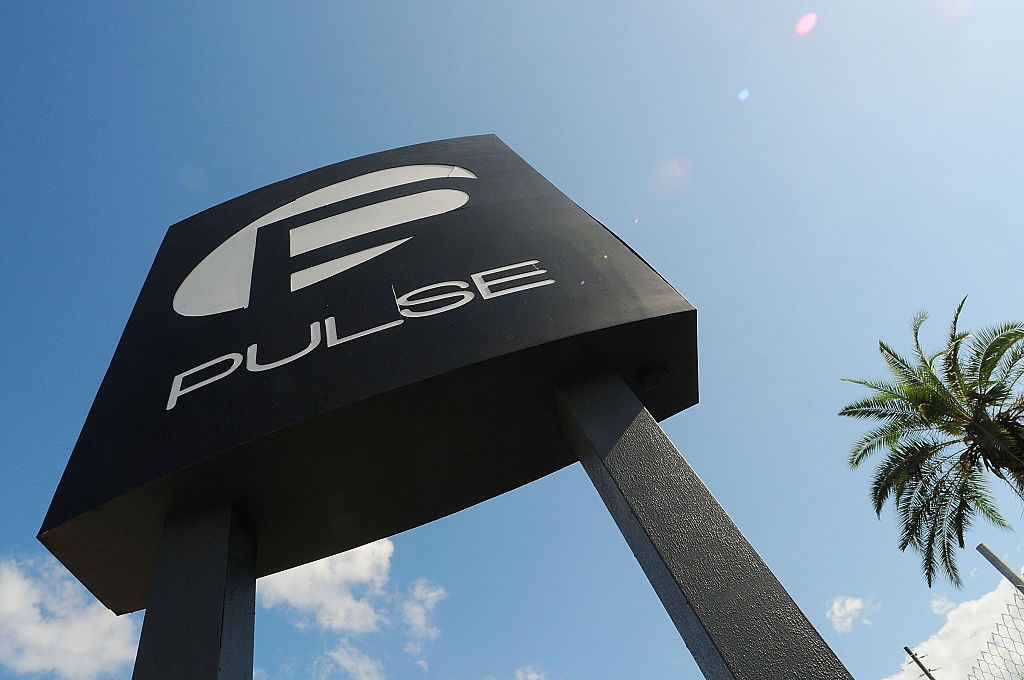‘We will not let hate win’: Pulse nightclub mass shooting victims remembered 4 years later
ORLANDO, Fla. - On June 12, 2016, 49 people were killed and 58 were wounded when a gunman entered Pulse, an LGBTQ nighclub in Orlando, Fla. and opened fire.
As of 2020, the Pulse nightclub massacre is the second-deadliest shooting in United States history. The first is the 2017 mass shooting in Las Vegas, in which 58 people were killed and hundreds more wounded at a country music festival.
Four years have passed since the Pulse massacre, but it left behind an unforgettable wound in a nation already marred by a history of gun violence.
RELATED: Mass killings hit new high in 2019, most were shootings
The suspect was identified as a 29-year-old American citizen and former security guard from Fort Pierce, Fla. The reason for his rampage at Pulse Nightclub was never entirely clear.But despite the violent act unleashed on Pulse that night, Orlando and the country rallied together and showed the world that even in tragedy, good can be found.
Most of the victims at Pulse were Latino members of the LGBTQ community ranging in age from 18 to 50. Before Pulse, many gay Latinos in Orlando felt they could only meet each other in gay bars on Latin or hip-hop nights.
"In our community, there was an absence of spaces for people who were queer and people of color," said Christopher Cuevas, who founded the support group QLatinx after the Pulse shooting.Still, many regarded Orlando as a haven, both for its visible gay community and for its thriving Latino population. Of metro Orlando’s 2.3 million people, more than a quarter are Hispanic, with Puerto Ricans making up about half of the Latino population.
RELATED: 'We are resilient' says Orlando Commissioner Patty Sheehan
QLatinx, a community group for Latino gay and lesbians, checks in with Pulse survivors at least once a month. Proyecto Somos Orlando soon will start a program helping newly arrived LGBTQ Puerto Ricans adjust to life in central Florida and hold regular seminars on topics like how to use the health care system.
In the aftermath of the attack, a joint venture between local governments and nonprofits offered mental health services and other assistance to Pulse victims and their families. But because of language barriers, immigration fears or previous feelings of disconnection, some of the victims and their families did not feel like they could use the services, Cuevas said.
The community had to “create our own because these spaces never catered to us before. They didn’t understand us, and they still don’t,” he said.Thus was born QLatinx, a community group for Latino gay and lesbians. The Q stands for “queer,” and “Latinx” is a gender-neutral form of “Latino.”
On the three-year anniversary of the shooting, Congressional Reps. Stephanie Murphy and Darren Soto, both of Central Florida, announced H.R. 3094, a bill requesting federal funds to use for any purpose relating to the Pulse Memorial.
"It’s important we remember the love that the 49 victims and their loved ones brought into this world, which will always be stronger than the hate that stole their lives on that day," she said. "By designating the site as a National Memorial, we will honor their memories, be inspired by their legacies, and recognize the positive contributions the LGBTQ community offers to the world.“
Both the memorial and a dedicated museum to remember the victims of the shooting is slated to be built by 2022.The onePulse Foundation has set up an interim memorial in Orlando in the meantime.
“We are grateful for the tremendous support of the community and would love nothing more than to have our community members join us in remembering our 49 Angels, and honoring our survivors and first responders, but we must prioritize the health and safety of the public, the Pulse community, and our employees,” said Barbara Poma, owner of the nightclub and founder of onePulse.
“We ask the community to join together again, in a different way this year, as a symbol of strength and solidarity in the face of tragedy, forever proving: We will not let hate win,” Poma said.
This year, the onePULSE Foundation will observe the four-year mark since the Pulse tragedy through a virtual ceremony due to the COVID-19 pandemic.
The pre-taped ceremony can be seen at 7 p.m. on Friday June 12 on the onePULSE Foundation Facebook page and onePULSE Foundation YouTube Channel, according to the foundation’s website.
The program includes the reading of the 49 names by family members, and remarks from City of Orlando Mayor Buddy Dyer, Orange County Mayor Jerry L. Demings, onePULSE Foundation Board Chair Earl Crittenden, and onePULSE Foundation Founder and CEO Barbara Poma.
The Associated Press contributed to this report.


